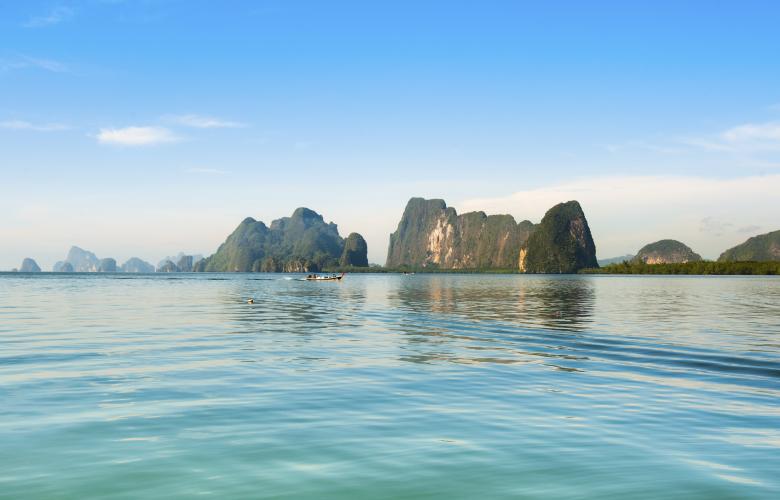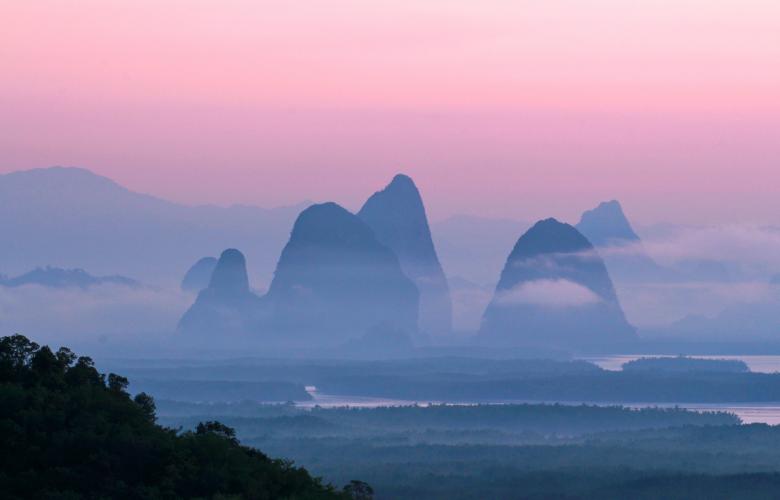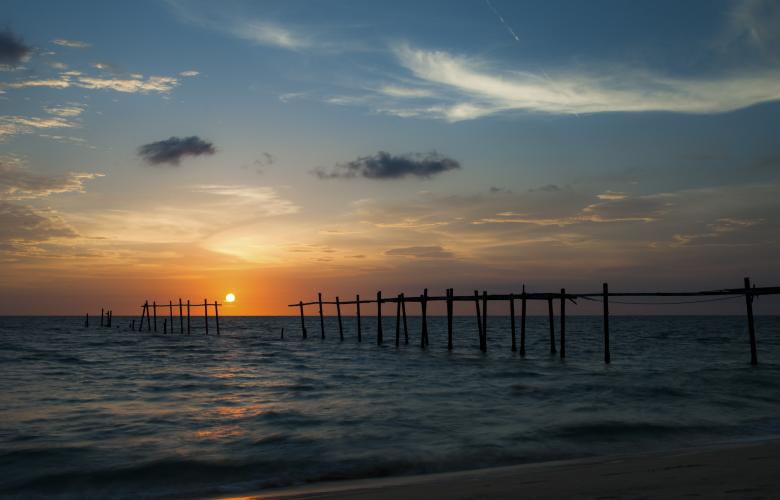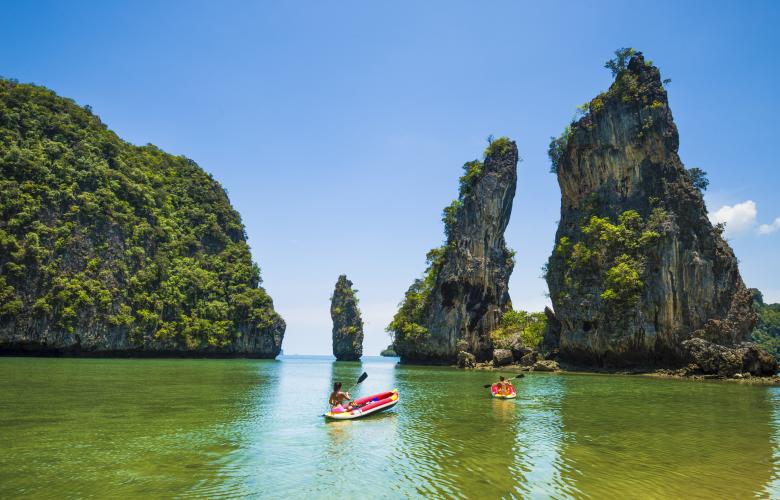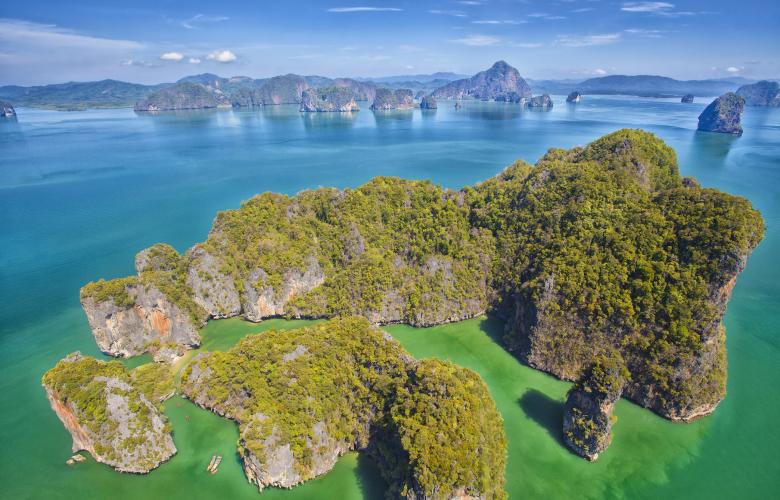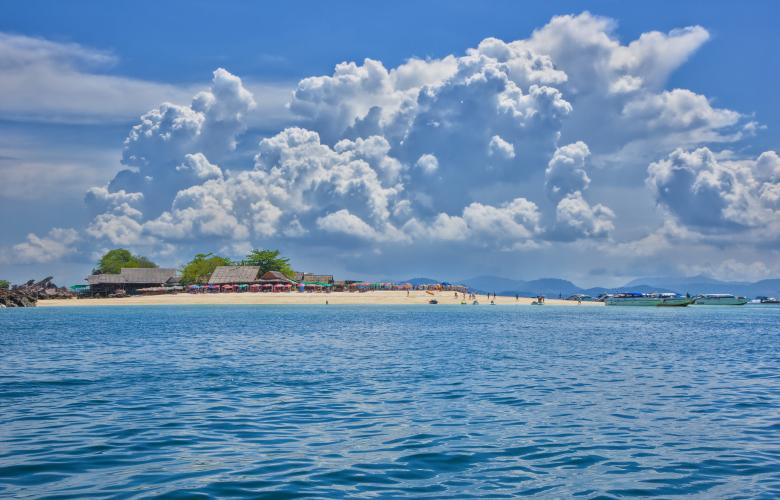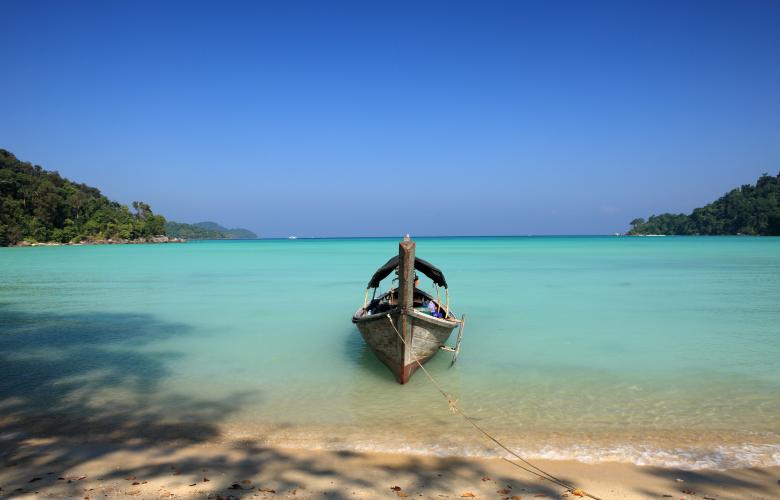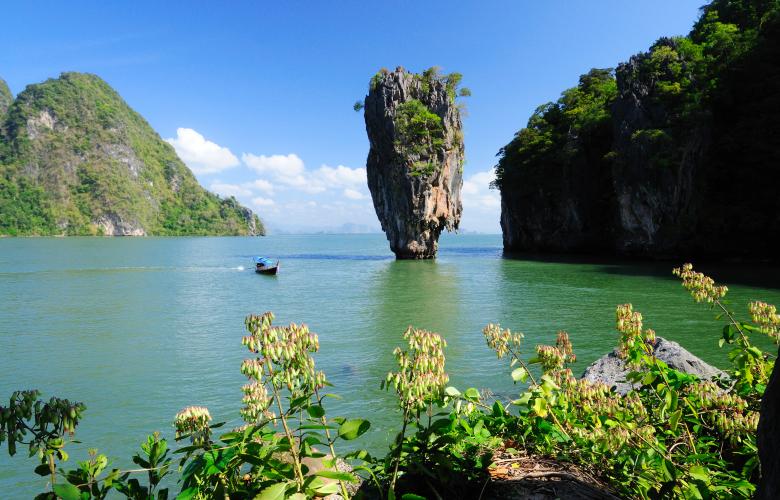- Bangkok
- Central Thailand
- Eastern Thailand
- Northeast Thailand
- Northern Thailand
- Southern Thailand
- Southern Thailand - Chumphon
- Southern Thailand - Krabi
- Southern Thailand - Phang Nga
- Southern Thailand - Phuket
- Central Island - Phuket
- Central West Coast - Phuket
- Bang Tao Beach - Phuket (Central West Coast)
- Emerald Bay - Phuket (Central West Coast)
- Kalim Beach - Phuket (Central West Coast)
- Kamala Beach - Phuket (Central West Coast)
- Laguna - Phuket (Central West Coast)
- Layan Beach - Phuket (Central West Coast)
- Patong Beach - Phuket (Central West Coast)
- Surin Beach - Phuket (Central West Coast)
- East Coast - Phuket
- North West Coast - Phuket
- Small Islands - Phuket
- South West Coast - Phuket
- Southern Coast - Phuket
- Southern Thailand - Satun
- Southern Thailand - Songkhla
- Southern Thailand - Surat Thani
Eco-Tourism Takes Centre Stage
Immortalised on the silver screen, Phang Nga Bay still plays a starring role in Thailand’s tourism – alongside its new co-star, eco-tourism
By Nick Weston
Contact
Aug 1, 2018
When suave superspy James Bond was taking on arch-villain Scaramanga in the exotic surroundings of an obscure Thai island in the 1974 blockbuster The Man with the Golden Gun, it’s unlikely that anyone realised the pivotal knock-on effect this global exposure would have for thus-far sleepy Phang Nga Bay.
Fast-forward to the year 2000, when another Hollywood blockbuster filmed in Phang Nga Bay – Leonardo DiCaprio’s The Beach – opened up more international awareness of this exquisitely beautiful island-studded seascape to a new generation of travellers.
Although both these box-office smashes enjoyed widespread fame, all this success fades in comparison with the subsequent global tourism acclaim of their Phang Nga Bay settings.
However, popularity of beautiful places brings its own bagful of issues and not all of them are welcome; in Phang Nga Bay’s case, sweeping international tourism inevitably stretched its glorious natural resources to their limits.
The incredible gravity-defying limestone karst outcrops – fantastically-mysterious features stretching skywards from the expansive azure sea – risked becoming commonplace and even pedestrian tourist sights.
There were also obvious risks of environmental damage caused by the vast scale of so many eager visitors.
But all this has started to change with the advent and growth of eco-tourism, that now creates awareness to protect the area’s precious natural resources while, conversely at the same time, opening up access to more of its unique attractions.
Since the late 1990s, visitors have been able to enjoy the option of sea canoe tours for authentic up close and personal experiences of Phang Nga Bay’s natural wonders.
Small canoes, usually holding just two tourists and a guide, allow ventures right inside caves that have been hollowed out over time in the karsts, through small openings into the sea.
Once inside these ancient grottos there are breathtaking sights to be seen; some of them are open to the sky and the daylight filtering in from above gives these rock formation interiors magical character.
There’s a word of warning for these sea canoe adventures, however; some of the cave entrances to access karst interiors can only be entered at low tide, and canoeing inside them is an experience that’s definitely not for anyone claustrophobic.
It’s not only islands that can be explored in this eco initiative, because back on the winding coastland surrounding the bay lies a labyrinth of unspoilt mangrove forests rich with wildlife and a wealth of fantastic natural sights.
If Phang Nga Bay’s global popularity was initially launched and maintained by big-budget Hollywood films, then these eco-conscious sea canoe tours are like private backstage tours, where sometimes intricate details behind the scenes can be of fascinating interest.
Standard tours of Phang Nga Bay on larger boats tend to follow the coast trail of rock formations, karsts, cave openings and hidden beaches. They usually include Khao Ping Gan (Leaning Rock), instantly recognisable as Scaramanga’s hideout in The Man with the Golden Gun, and another nearby island also known as James Bond Island, Koh Ta Pu.
Back on shore, there’s a new eco-tourism initiative in the shape of the Elephant Retirement Park Phang Nga, a safe and caring jungle sanctuary where retired and rescued elephants live as nature intended, in acres of natural jungle overlooking the Phang Nga River.
This recently-opened ethical venture follows the success of its sister Elephant Retirement Park in Phuket and gives visitors an insight into rural Thai life and culture – as well as memorable hands-on experiences with its resident herd of gentle giants.
Rescued from their previous lives of having to work long gruelling hours in forest lumber industries, or shackled to perform degrading tricks for tourists, these elephants now eke out their days in leisurely comfort, basking in the kindness of their hosts and visitors.
It’s a powerfully tactile version of eco-tourism, and one that gives a new lustre to the natural beauty of Phang Nga Bay.
Source: tourismthailand.org & elephantretirementparkphangnga.com
Important Information:

